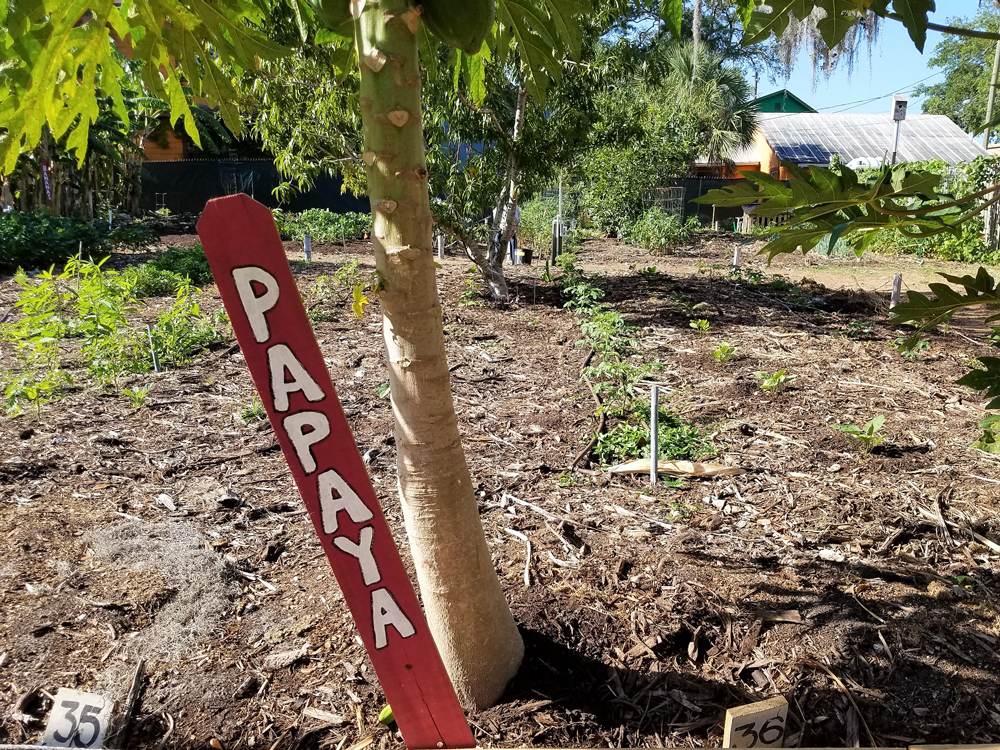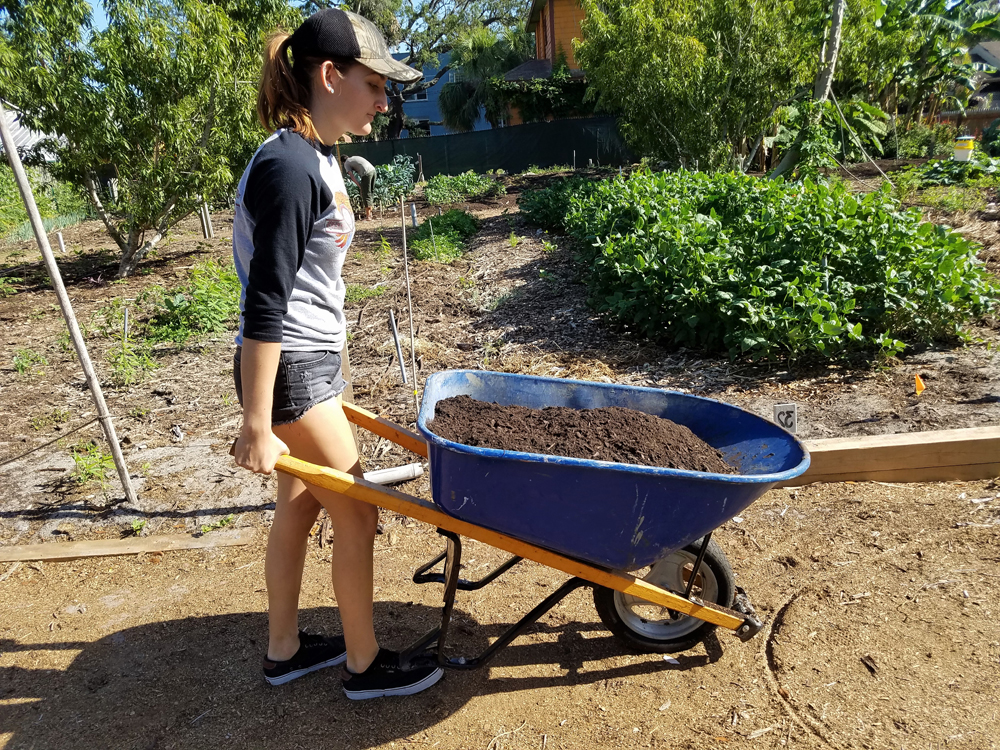Urban agriculture could be the future of healthy living in St. Petersburg, Florida.
The city is currently proposing an ordinance to issue permits allowing on-site sales in neighborhood zoning districts for commercial urban farming.
“The city ordinance and the expansion of urban agriculture will promote local economic development and health benefits for the people living in St. Petersburg,” said Robyn Keefe, the city’s planner.
“We are so removed from food growing that people don’t know where food is coming from,” added Mark Trujillo, a public health specialist at the University of Florida’s family nutrition program.
Under current regulations, any commercial farming operation beyond what is done in a community garden is only allowed in an industrial zoning district. According to Keefe, with the new city ordinance, outdoor urban agriculture would be permitted in most zoning districts, expanding such farming and ‘greening up’ the city.
“Having a more robust food system means that there will be more American farmers,” said Trujillo. “Right now, only 2 percent of Americans are farmers.” It has been seen that urban agriculture can fit in well in cities. Keefe explained that it is very popular in other areas of the country such as the northeastern U.S.
Now, citizens of St. Petersburg can grow a community garden anywhere in the city after obtaining an annual permit for $50. These community gardens are considered nonprofit enterprises, meaning they can donate and/or sell produce off-site. However, since most such gardens are in neighborhood zoning districts, they cannot sell their produce at the farm itself.
Many ‘food deserts’ are located in the neighborhoods of south St. Petersburg; these areas lack immediate access to fresh food. The proposed city ordinance would allow community gardens in food deserts to sell affordable, healthy produce directly to their residents on-site. This expands opportunities for both businesses and residents.
Keefe is optimistic that the city ordinance will eventually eliminate the need for an annual permit. This would mean that only one permit will need to be purchased up front as opposed to an annual permit.
Keefe further explained that on-site farm stands encourage residents to buy fresh produce in areas where fresh produce is not available for at least a mile. This will also provide an opportunity for local farmers to sustain their community gardens by selling produce at their operational costs.
Keefe also said that the city ordinance will also provide social opportunities for neighbors to work together in their gardens.

“The Sustainable Urban Agriculture Coalition (SUAC) has started to teach organic gardening classes at Pinellas Technical College,” explained Bill Bilodeau, the Vice President of SUAC.
They have collaborated on a grant application with the United States Department of Agriculture (USDA) to train urban farmers. If they receive the grant, they will have funds to develop the classes on a commercial scale.
The county land use regulations do not allow for what the city is proposing. Therefore, the county’s guidelines will have to be changed as well.
Meanwhile, the city’s proposed urban agriculture ordinance is also at odds with the state legislature’s ‘Right to Farm Act’, implemented in 1970 to preserve rural farmland and protect existing farm uses from encroaching urbanization.
“The Right to Farm Act is being used to stall the development of urban agriculture,” said Bilodeau. “It is a very awkward situation and I don’t think the law was intended that way.”
City and County-level planning staffs are currently investigating options for changes that will allow the urban agriculture ordinance to be passed at the local level. They are going to submit their amendment package this spring. “Therefore, the timing of the final ordinance is out of the city’s hands,” explained Keefe. The city is hoping that highlighting the issue might increase interest at the state level to move forward sooner.
“We are optimistic. We feel that the public interest and the city’s involvement are growing,” said Bilodeau. “We think that the future for urban agriculture looks good.”
Keefe asks that residents in favor of the urban agriculture city ordinance write to their state legislators. Citizens can also reach out to their specific local representatives by visiting www.stpete.org/council/index.php or by emailing all of the council members at [email protected], asking for these changes:
District 1- Charlie Gerdes
[email protected]
727-893-7117
District 2- Brandi Gabbard
[email protected]
727-893-7117
District 3- Ed Montanari
[email protected]
District 4- Darden Rice
[email protected]
727-893-7117
District 5- Steve Kornell- Vice Chair
[email protected]
727-893-7117
District 6- Gina Driscoll
[email protected]
727-893-7117
District 7- Lisa Wheeler-Bowman Council Chair
[email protected]
727-893-7117
District 8- Amy Foster
[email protected]
727-893-7117



